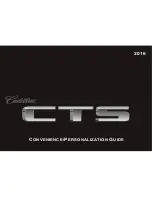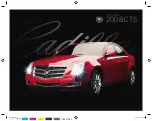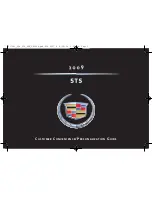
||
MAINTENANCE AND SERVICE
578
to achieve a good result, or to supplement auto-
matic car washes with washing by hand.
The car must only be washed by hand over
the first few months. This is because the paint
is more delicate when it is new.
Before driving the car into an automatic car
wash, deactivate the functions for automatic
braking when stationary and automatic park-
ing brake application. If these functions are
not deactivated, the brake system will jam
when the car is stationary and the car will not
be able to move.
In car washes where the car is towed through
with rolling wheels, the following applies:
1. Drive into the automatic car wash.
2. Deactivate the function for Automatic brak-
ing when stationary using the switch in the
tunnel console.
3. Deactivate the function for automatic appli-
cation of parking brake via the centre dis-
play's top view.
4. Move the gear lever to position
N
.
5. Switch off the engine by turning the start
knob in the tunnel console clockwise. Hold
the knob in place at least 4 seconds.
> The car is ready for the automatic car
wash.
The system will automatically switch to
P
mode unless the above step is followed. The
wheels are locked in
P
mode, which they
should not be when putting the car through
an automatic car wash.
•
Before washing the car, make sure that
the automatic rain sensor is deactivated,
otherwise there is the risk of it starting
and damaging the wiper arms.
•
Make sure that the door mirrors are
retracted, any auxiliary lamps secured,
antennas retracted or removed, otherwise
they risk being damaged by the auto-
matic car wash.
High-pressure washing
When using high-pressure washing, use sweep-
ing movements and make sure that the nozzle
does not come closer than 30 cm to the surface
of the car. Do not spray directly onto the locks.
Testing the brakes
Lightly depress the brake pedal now and then
when driving long distances in rain or slush. The
heat from the friction causes the brake linings to
warm up and dry. Do the same thing after starting
in very damp or cold weather.
WARNING
Always test the brakes after washing the car,
including the parking brake, to ensure that
moisture and corrosion do not attack the
brake linings and reduce braking perform-
ance.
Wiper blades
Asphalt, dust and salt residue on wiper blades, as
well as insects, ice etc. on the windscreen, impair
the service life of wiper blades.
When cleaning, set the wiper blades in service
position.
Wash the wiper blades and windscreen regu-
larly with a lukewarm soap solution or car
shampoo. Do not use any strong solvents.
Exterior plastic, rubber and trim
components
A special cleaning agent available from Volvo
dealers is recommended for the cleaning and
Summary of Contents for XC 60 TWIN ENGINE
Page 1: ...OWNER S MANUAL ...
Page 2: ......
Page 14: ......
Page 15: ...INTRODUCTION ...
Page 29: ...INTRODUCTION 27 Fuel consumption and CO2 emissions p 600 Air quality p 181 ...
Page 58: ... INTRODUCTION 56 Overview ...
Page 61: ...SAFETY ...
Page 88: ......
Page 89: ...INSTRUMENTS AND CONTROLS ...
Page 96: ... INSTRUMENTS AND CONTROLS 94 Fuel gauge p 102 License agreement for the driver display p 103 ...
Page 180: ......
Page 181: ...CLIMATE CONTROL ...
Page 213: ...LOADING AND STORAGE ...
Page 230: ......
Page 231: ...LOCKS AND ALARM ...
Page 268: ... LOCKS AND ALARM 266 Country Area Type approval Serbia The United Arab Emirates ...
Page 270: ......
Page 271: ...DRIVER SUPPORT ...
Page 403: ...STARTING AND DRIVING ...
Page 471: ...AUDIO AND MEDIA ...
Page 518: ......
Page 519: ...WHEELS AND TYRES ...
Page 542: ......
Page 543: ...MAINTENANCE AND SERVICE ...
Page 587: ...SPECIFICATIONS ...
Page 618: ...ALPHABETICAL INDEX 616 ...
Page 619: ......
Page 620: ...TP 23064 English Int AT 1717 MY18 Copyright 2000 2017 Volvo Car Corporation ...
















































